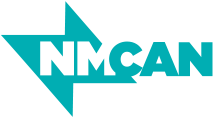Leading Change
Youth Leaders guide NMCAN’s policy work, engaging young people to become advocates. However, our policy work is more than just advocating for legislation. Leveraging the skills that young people develop while engaging in our leadership enrichment opportunities, we are building a movement where young people and partners come together to establish innovative systems of support that reflect the needs, values, and priorities of young people and families. We work to achieve this by:
- Engaging young people in the policy process and supporting them in developing their confidence and skills as advocates and leaders
- Creating policy solutions that are identified, developed, and advocated for by young people who have experienced systems
- Educating and building partnerships with community-based organizations, local businesses, educational institutions, service providers, lawmakers, and funders
NMCAN Policy Blueprint 2020-2024
NMCAN’s systems change work is guided by our Policy Blueprint 2020-2024, which was developed in partnership with young people and identifies five priority areas:
- Young people in systems must have normal experiences
- Young people aging out of systems must be better prepared to transition to adulthood and have access to opportunities for success
- Young people in care must experience permanence
- Children and youth in foster care must receive high quality advocacy
- Child and youth-serving systems must meet the needs of those they serve
Want to learn more about our Policy Blueprint? Check out our summary.
Want to learn how we are supporting families? Check out our Young Parent Policy Blueprint.
Recent Policy Wins
- Guardianship Changes provides protections for parents signing voluntary placement agreements, including legal counsel (2023).
- No ID Card Fee for Homeless Individuals waives the fee for obtaining a state identification card for people experiencing homelessness (2023).
- The Office of Family Representation and Advocacy is an independent office to provide quality legal representation to children and families in cases involving allegations of abuse and neglect. The office houses interdisciplinary teams of attorneys, social workers, and parent mentors to honor families’ rights, strengthen parents’ ability to care for their children, and avoid family separation when possible (2022). Learn more at https://www.familyrepresentationnm.org
- Zero Fares is a one-year pilot program that makes Albuquerque public transportation free to everyone during 2022 to promote equity, reduce traffic, and help the environment (2021).
- Free Birth Certificates for Homeless Individuals waives fees to obtain a birth certificate for people experiencing homelessness, allowing youth experiencing homelessness to obtain this foundational document that facilitates access to other necessary documents (2021).
- Partial Credits requires schools to offer credit for work completed in previous schools (2020).
- Fostering Connections Act allows young people to opt into age-appropriate supports between ages 18-21, including case management, living stipends, and court review to ensure a healthy transition to adulthood (2019).
- Tuition Waiver for Foster Youth was originally passed in 2014, but now offers access to free public college if young people were in foster care at any time on or after their 14th birthday (2019).
- Employer Tax Credit incentivizes employers to hire young people who are or were in foster care (2018).
- Support for Transferring Students requires schools to provide student records to the student’s new school within two days of transfer; offer priority placement in required classes, and a diploma if students impacted by systems meet state graduation requirements, even if district requirements are different; and access to participation in sports and activities (2017).
- Prudent Parenting Standard, which is in the administrative code, normalizes the foster care experience by allowing foster parents to make day-to-day decisions for children and youth (2016).
- Medicaid to 26 provides health insurance to young people who aged out of foster care regardless of which state they were in care (2015).
